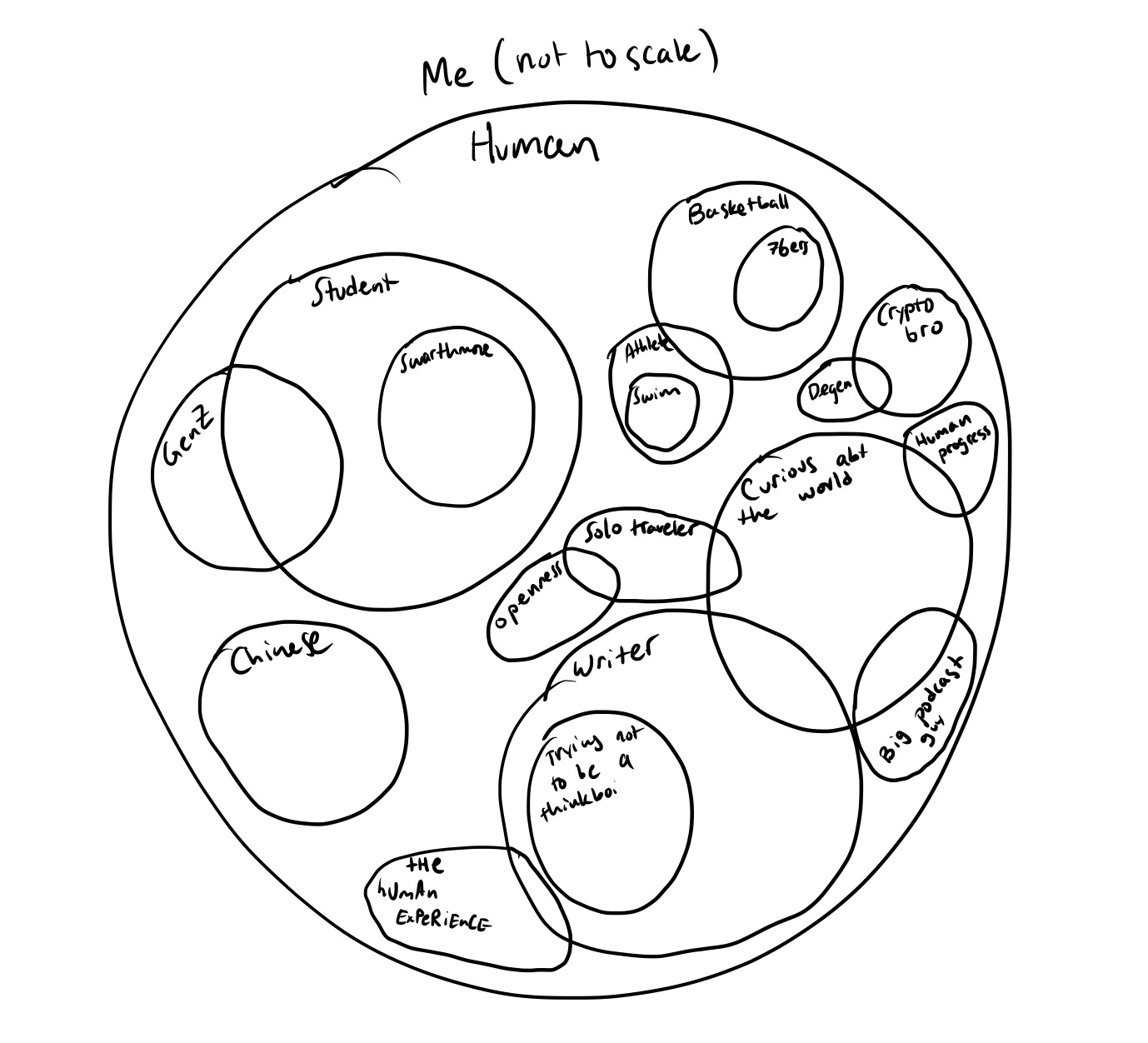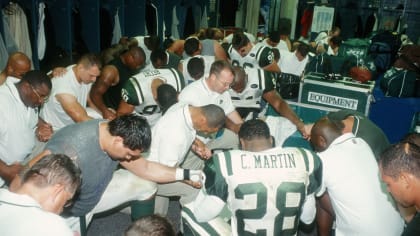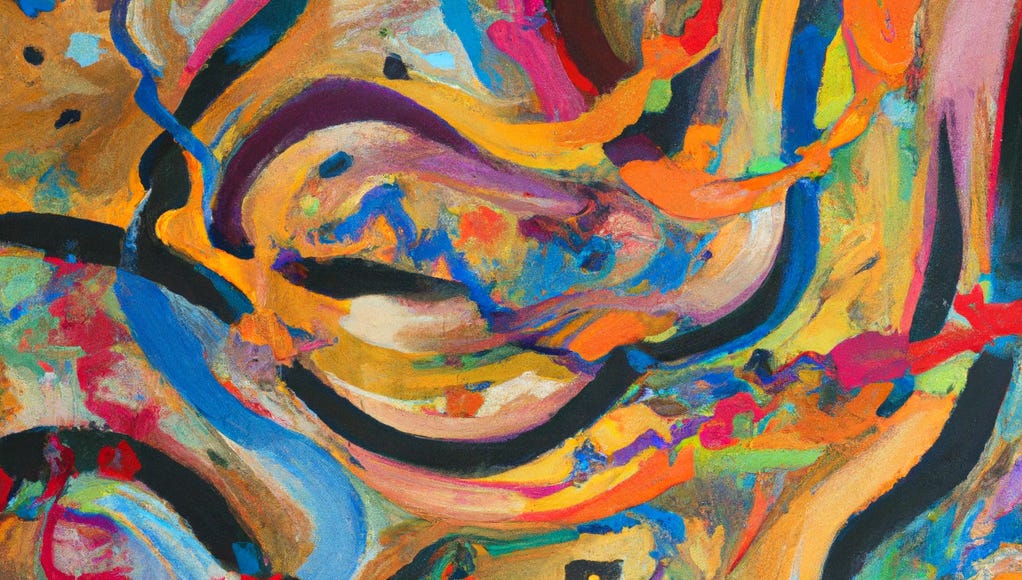This tweet is an exaggeration, but only barely:
The summer of 2016 when Pokémon Go came out was truly a special moment in cultural history. There was an energy in the world—a sense of unity, excitement, and positivity that touched everyone. The best way to describe it is that there was a feeling of camaraderie in the world.
You yourself probably remember waking up during that time and just feeling different. I'd like to propose a new term—camaraderie at scale—to describe these moments.
This got me thinking—when has camaraderie occurred at scale before, and what made those moments so special? How can we engineer more of them into our lives?
Some notable ones in recent memory: Linsanity, 2008 Beijing Olympics.
Some notable ones (or so I'm told) that I'm too young to remember: 9/11, Sosa vs. McGwire, the Moon landing.
Camaraderie at scale is extremely powerful. Few things in the world can mobilize and unite entire nations, or in some instances, the whole planet. I spent some time researching and reliving past moments in an effort to document the factors that made them so special.
Side quest: origins of camaraderie
It's worth exploring the word camaraderie and its closely related comrade. Comrade has origins in French, Italian, and Spanish words that all mean something along the lines of “one who shares the same room.”
I really like this definition because it conveys a sense of being in something together. A comrade is someone sympathetic to your cause—bound by an ideology, but not necessarily similar or connected in any other way.
Camaraderie is about some connection that brings together otherwise disparate people. I think the key concept behind this is identity, and how moments can change who we identify as.
Micro-identities & micro-communities
Everyone has an identity—a label they give themselves that connects them to a concept, group, or ideology. Most people have multiple identities. You might identify as a student, but also as a writer, a person who loves to cook, and a Taylor Swift fan. Most people also have layers of identity. I identify as Chinese, but also Asian American. I love basketball, but also the 76ers, and I’m a big fan of Tyrese Maxey.
Labels and identities are very influential. They dictate what tribes we belong to, whose ideas we support, and how we perceive others. And for most of our lives, we are stuck in various “micro-identities”—extremely niche labels with limited membership.
You don’t identify with your high-level identities, such as “human” or “woman” as often as your lower-level, more niche micro-identities like “UT Austin student” or “marathon runner.” This is partly because high-level identities aren’t that useful. Other people don’t get any meaningful context from knowing you are a human.
But there are also community benefits to residing in our micro-identities. Micro-identities create micro-communities—groups with some sort of social-gating to limit membership. To identify as crypto-native, you need some experience and technical knowledge; to identify as a runner, you need to actually go out there and run. Social-gating allows the group to self-select for certain traits and gives members a common point to rally around.
Because of this exclusivity, we tend to feel more aligned with fellow micro-community members. It's also easier to coordinate collective action within smaller, more aligned communities—convincing everyone who identifies as a Taylor Swift fan to buy her new album is much easier than convincing everyone who identifies as a Lakers fan or everyone who identifies as a student.
Technology has made it exponentially easier for micro-communities to flourish. Before the internet, your interactions were largely limited by geography. If you were interested in something niche, you had to find a community among the people nearby.
At the same time, technology has made it easier and more necessary to define identify in more specific terms, leading to finer and finer ways of differentiating groups. Thousand-member communities are now million-member groups with factions and ideologies forming within. To feel aligned, social-gating has become more strict and micro-communities more exclusive.
The endless ways to divide and differentiate gives rise to tribalism and zero-sum mindsets. We are more likely to view outgroup members uncharitably and unfairly discount their ideas. Micro-communities often compete against each other and act irrationally in the name of their identity (think about fans yelling at refs and opposing players at sports games).
Today, the identity landscape is highly fractured. If you can create a hyper-specific identity and still find a community of like-minded people, what's the incentive to connect across labels? Why would you want to get to know someone who views the world differently, when you can spend time with people you know you’ll get along with?
The tradeoff for connecting with similar people is not connecting with people different from us.
Moments that transcend identity
Widespread camaraderie is becoming rarer and rarer. Most of us live in highly polarized societies where the vast majority of people won’t even date across political party lines. More than ever, we should be looking for ways to create camaraderie at scale and soften the dividing impact of micro-communities.
However, sometimes things happen1
Camaraderie at scale occurs when something breaks our sense of micro-identity. When something so devastating, shocking, awe-inspiring, or all of the above makes the tiny communities we spend our time in seem irrelevant, and forces us to revert to our higher-level identities.
9/11 broke Americans’ sense of micro-identity. All of a sudden, which team you supported or which political party you agreed with seemed to not matter. Instead, people defaulted to a higher level of identity—being an American. When you saw a stranger, everyone defaulted to the mindset of “this is my fellow American.” We treated each other the same way you would treat someone wearing your favorite sports team jersey.
If aliens attacked earth tomorrow, you can imagine that concepts of nationalism and political parties would seem less relevant. When the fate of humanity is at risk, we all take on the identity of human.
In international relations, there is a theory that having a common enemy can reduce polarization and in-fighting within groups. An example of this happened in the Middle East, where the threat of ISIS gave regional actors a brief moment of unity:
Just before ISIS rose from fringe extremist group to the world’s leading transnational, violent proto-state, the Middle East was riven by destabilizing conflicts that threatened to blow the already-teetering region apart. Syria and Iraq were imploding as states, with shrinking state authority leaving terrorist and extremist groups ever more freedom to organize and launch attacks in the spiraling ungoverned zones of the Levant. America had disinvested and none of the would-be replacement powers in the region demonstrated the capacity for stability, control, or governance.
The ISIS horror show spread from Raqqa in January 2014 to Mosul in June of that year. Briefly, the group seemed able to strike everywhere, from Marseilles, Paris, and Brussels, to Baghdad and Tehran. For an instant, that threat spurred a clarity of focus.
Briefly united by common cause against ISIS, odd bedfellows temporarily set aside their differences. Although they didn’t always coordinate directly, almost every significant entity in Syria and Iraq supported the anti-ISIS campaign. Kurdish factions that detested each other worked in sync against ISIS. So did Baghdad and Iraqi Kurdistan, Damascus and many of its sworn opponents, and Iran and the United States. But every single one of the destabilizing conflicts that was flaring in 2014 is worse today. (source)
In this case, fighting ISIS transcended what it meant to be Iraqi or Kurdish. It was powerful enough to convince thousands of people who were previously engaged in an existential battle to momentarily pause and work together on something else.
Engineering camaraderie
I’m interested in how to engineer camaraderie because I think the feeling of it elevates our experience of life. During the summer of Pokémon Go, I was sad to go to sleep and excited to wake up. My baseline level of happiness and joy was way higher thanks to the camaraderie I felt.
I remember waking up and the first thing I would do is get on my bike, ride to my friend’s house, and we would go catch Pokémon. It would be amazing to feel that more, or even most of the time.
This is a worthwhile pursuit because ordinary days make up the vast majority of our existence. If camaraderie at scale makes ordinary days better, wouldn’t it be awesome to experience it more often? Or at least recreate it on a smaller scale within our own lives and communities.
From looking at past moments, I've found three traits that are necessary to break our sense of micro-identity in favor of a more expansive one:
Optimistic, ambitious goals
Sufficient community participation
Ideological alignment that cuts across identities
Optimistic, ambitious goals
Past moments have been characterized by a sense of unbridled optimism. In each, there was a sense that we were either pushing the limits of human potential or, at the very least, working to get somewhere better. Even disasters like 9/11 were optimistic in the sense that the country was rebuilding and recovering.
To inspire people, you need an inspiring goal. Something that makes people want to be a part of it. It doesn’t have to change the world, but it should captivate people.
I’ve found that creating things is a great way to do this. Creating something and sharing it with the world is a process of collaboration and ambition. Looking back, you want everyone involved to think damn, we really made that.
Sufficient community participation
It's not feasible for you to engineer camaraderie at a global scale. But, you can achieve a similar result in your own community.
In this case, community refers to the people you spend most of your time with—friends, family, coworkers, and people in your area. If enough of those people are aligned and working towards an optimistic, ambitious goal, I think you'll find a similar feeling.
You may not be able to connect with your fellow stranger off the street, but most of your day will be spent with people who have adopted the greater identity of “I want to make this big thing happen.”
Ideological alignment that cuts across identities
Big goals need people that believe in them and work to make them happen. The biggest challenge is creating camaraderie that isn't limited to a micro-community. For camaraderie to scale, it should cut across identities.
I assume that the people you spend time with aren't a monolith. Most likely, not all your friends are exactly the same in terms of interests, beliefs, and how they spend their time. If everyone you spend time with is already in the same micro-community, you can create camaraderie by just setting some ambitious goal for the community to work towards.
Otherwise, camaraderie begins to scale when people that don't usually identify with each other can connect. To feel aligned and working towards a common goal with a stranger is the special feeling of camaraderie.
In an episode of Not Overthinking, Ali Abdaal talks about feeling a sense of camaraderie from working on his medical school’s annual pantomime production:
We’d get like a hundred people all doing different things but all working towards this common goal of putting on this big show. And everyone is putting their best in and not getting paid for it and purely doing it because it's fun.
I think it’s a good example of having an ambitious goal to bring together people of distinct identities under a broader identity.
Why we long for camaraderie
I'm pretty satisfied with the identity explanation for how moments of camaraderie form. Another question I'd like to answer is why we love these moments so much.
In the trailer for 38 At The Garden, this quote about Linsanity stuck out to me:
The last few years, Asian Americans have just gotten beaten down. And when I think back on Linsanity, I long to feel those moments of just pure joy and unity.
It's uncontroversial to say that humans are social animals. I believe one of the most fundamental aspects of the human experience is connecting with your fellow human. To break past first impressions and get to know someone for who they are and what they believe, and then simply appreciate their presence and existence.
There’s a reason why loneliness is on the rise despite technology designed to connect us. What’s missing from the current stack is moments of serendipitous, unscripted, and raw interaction—moments where we find connection in places we least expect it.
When you have a conversation with someone on a train in an unfamiliar country, and you feel you understand them deeply without ever knowing their name. Or meeting someone for the second time, only to be surprised that they’re a completely different person than you initially thought.
These moments are becoming rarer, and we feel lost without them.
With the rise of so many micro-communities and identities, it has become increasingly difficult to do this. We are less likely to talk to people outside our tribe and more likely to judge without understanding.
But I think some people still understand and believe in the value of forming genuine connections with people, regardless of identity. This is why we long for camaraderie—there are enough people in the world that believe the common identity of human is enough to connect with someone, and it’s incredibly satisfying when it happens.
The event isn’t as important as the act of bridging identities. Moments that break our sense of identity do this for us. They make it not only socially acceptable but comforting to reach across labels.
Some events are so tragic or inspiring that reaching out is our first instinct. And I think that's quite special—for something to strike so deeply at the human experience, that we feel we have no choice but to share it with others.
Special shout out to Manansh for inspiring me to write this piece. Also thanks to Katie and the Writecasters gang for reading drafts.
[citation needed]







If camaraderie equals one who shares the same room, how might we call one who shares the same planet?